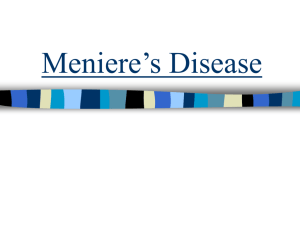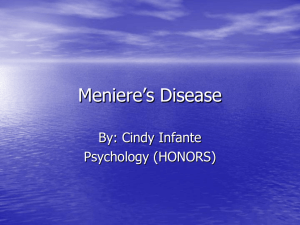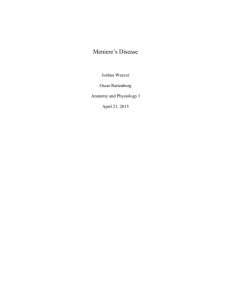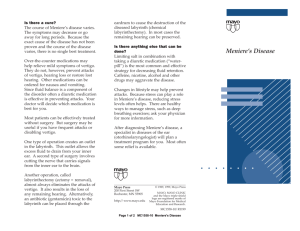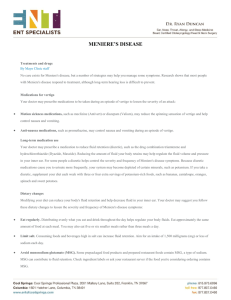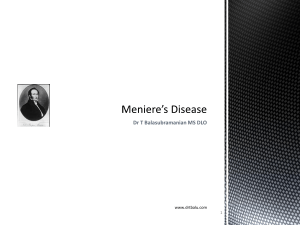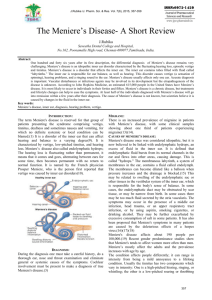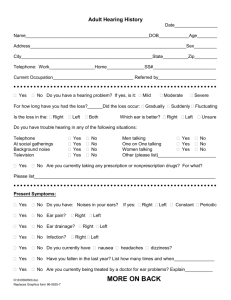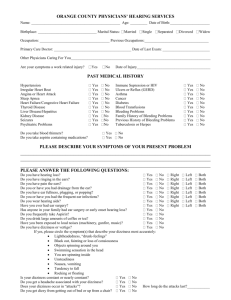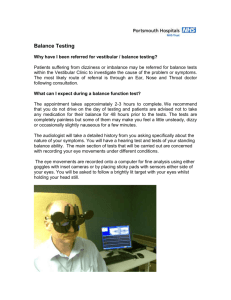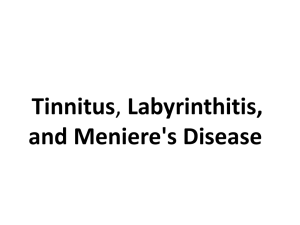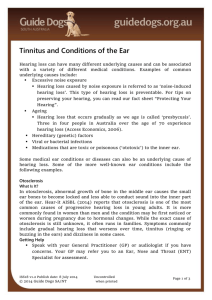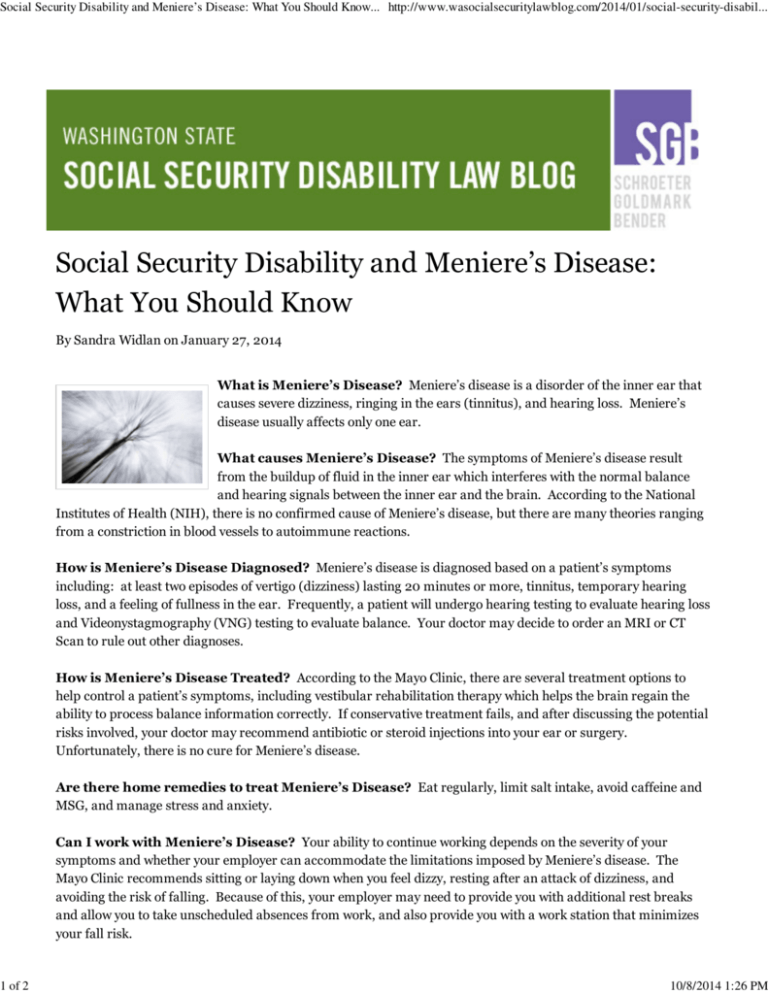
Social Security Disability and Meniere’s Disease: What You Should Know... http://www.wasocialsecuritylawblog.com/2014/01/social-security-disabil...
1 of 2
Social Security Disability and Meniere’s Disease:
What You Should Know
By Sandra Widlan on January 27, 2014
What is Meniere’s Disease? Meniere’s disease is a disorder of the inner ear that
causes severe dizziness, ringing in the ears (tinnitus), and hearing loss. Meniere’s
disease usually affects only one ear.
What causes Meniere’s Disease? The symptoms of Meniere’s disease result
from the buildup of fluid in the inner ear which interferes with the normal balance
and hearing signals between the inner ear and the brain. According to the National
Institutes of Health (NIH), there is no confirmed cause of Meniere’s disease, but there are many theories ranging
from a constriction in blood vessels to autoimmune reactions.
How is Meniere’s Disease Diagnosed? Meniere’s disease is diagnosed based on a patient’s symptoms
including: at least two episodes of vertigo (dizziness) lasting 20 minutes or more, tinnitus, temporary hearing
loss, and a feeling of fullness in the ear. Frequently, a patient will undergo hearing testing to evaluate hearing loss
and Videonystagmography (VNG) testing to evaluate balance. Your doctor may decide to order an MRI or CT
Scan to rule out other diagnoses.
How is Meniere’s Disease Treated? According to the Mayo Clinic, there are several treatment options to
help control a patient’s symptoms, including vestibular rehabilitation therapy which helps the brain regain the
ability to process balance information correctly. If conservative treatment fails, and after discussing the potential
risks involved, your doctor may recommend antibiotic or steroid injections into your ear or surgery.
Unfortunately, there is no cure for Meniere’s disease.
Are there home remedies to treat Meniere’s Disease? Eat regularly, limit salt intake, avoid caffeine and
MSG, and manage stress and anxiety.
Can I work with Meniere’s Disease? Your ability to continue working depends on the severity of your
symptoms and whether your employer can accommodate the limitations imposed by Meniere’s disease. The
Mayo Clinic recommends sitting or laying down when you feel dizzy, resting after an attack of dizziness, and
avoiding the risk of falling. Because of this, your employer may need to provide you with additional rest breaks
and allow you to take unscheduled absences from work, and also provide you with a work station that minimizes
your fall risk.
10/8/2014 1:26 PM
Social Security Disability and Meniere’s Disease: What You Should Know... http://www.wasocialsecuritylawblog.com/2014/01/social-security-disabil...
2 of 2
Do people with Meniere’s Disease qualify for Social Security Disability? You may consider applying
for Social Security Disability benefits if you become unable to work due to Meniere’s disease. According to Social
Security’s Listing of Impairments 2.07, you will be approved for disability benefits if you have a history of
frequent attacks of balance disturbance, tinnitus, and progressive hearing loss, and: (a) disturbed function of the
vestibular labyrinth demonstrated by vestibular tests, and (b) hearing loss established by audiometry.
Washington State Social Security Disability Law Blog
Schroeter, Goldmark & Bender
500 Central Building
810 Third Avenue
Seattle, WA 98104
206.622.8000 Phone
800.809.2234 Toll-Free
206.682.2305 Fax
Copyright © 2014, Schroeter, Goldmark & Bender. All Rights Reserved.
10/8/2014 1:26 PM

